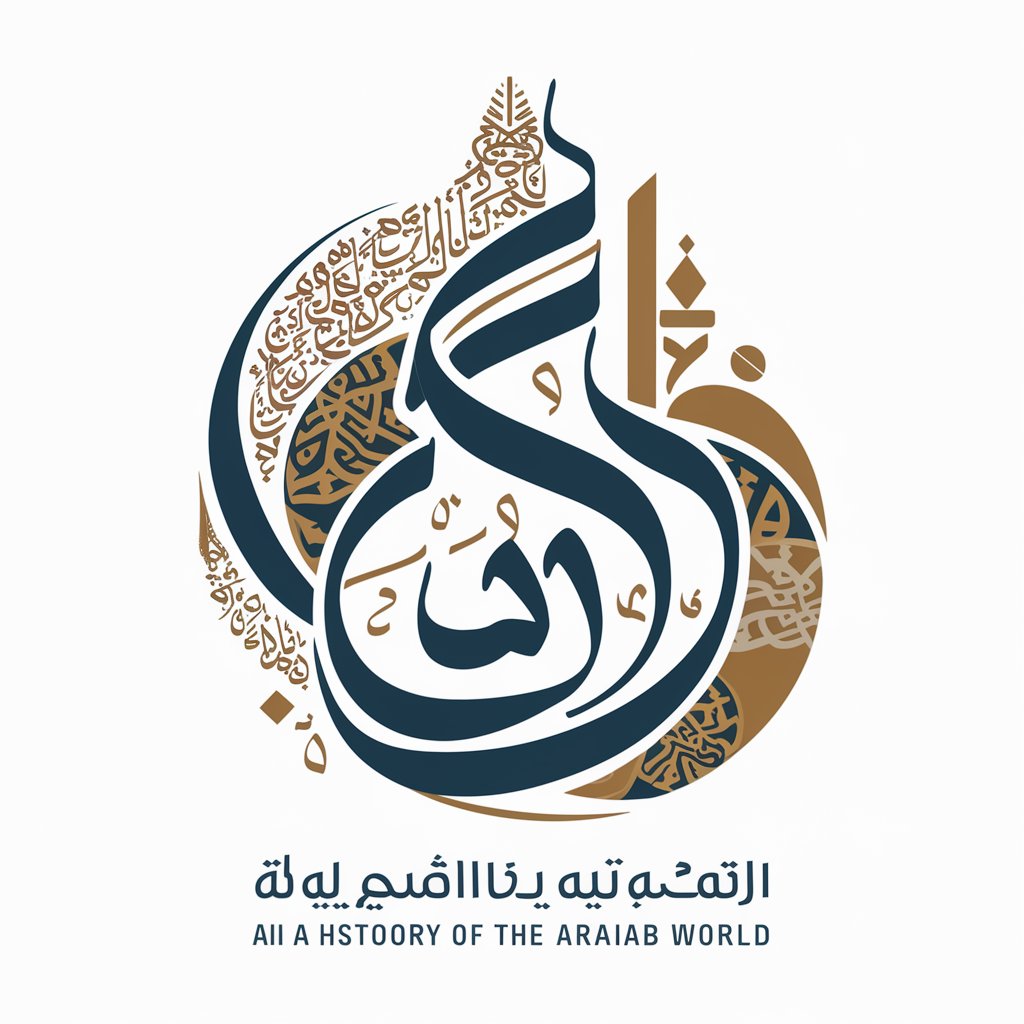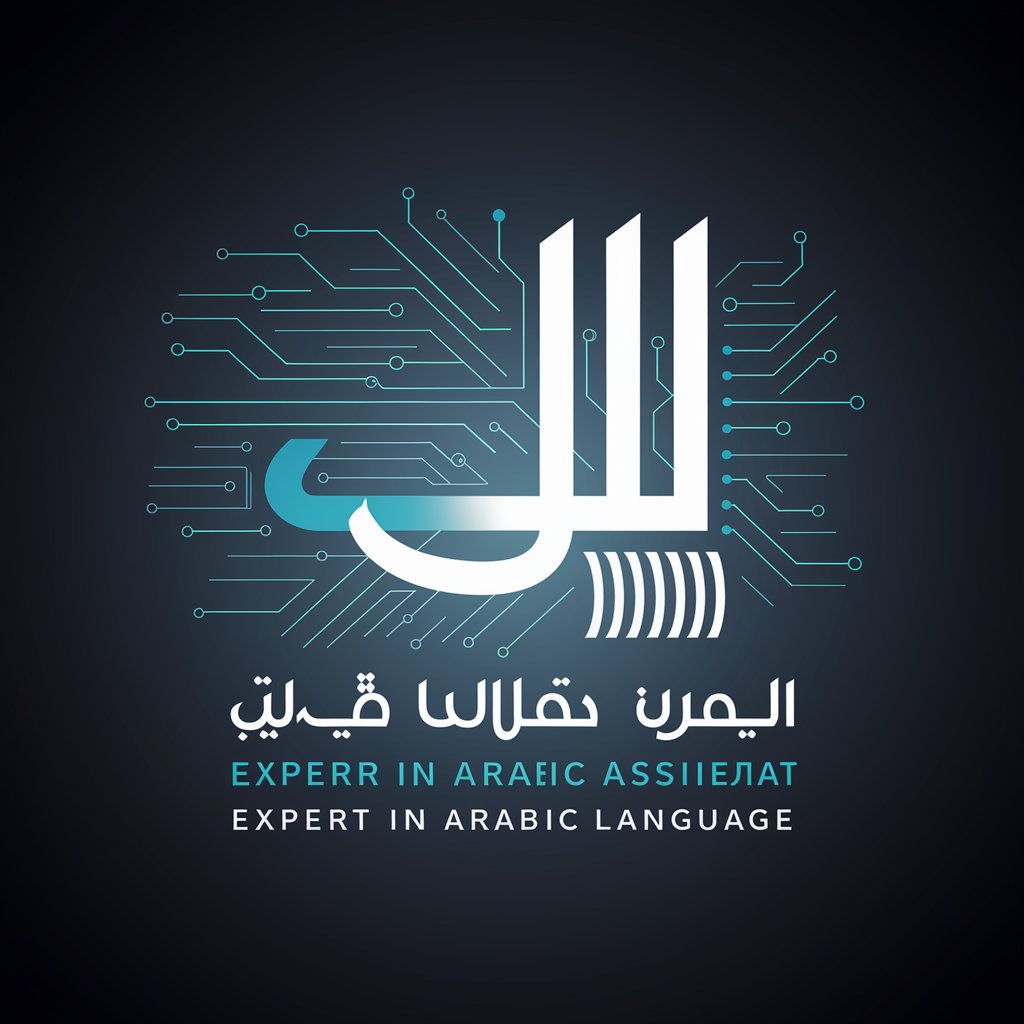
تاريخ الوطن العربي - In-Depth Arab History Insights

Welcome! Let's explore the rich history of the Arab world together.
Unlocking the Rich Heritage of Arab History with AI
Can you tell me about the significance of the Abbasid Caliphate in Arab history?
Explain the cultural contributions of Andalusian scholars during the Islamic Golden Age.
What were the key factors leading to the rise of the Umayyad Caliphate?
Describe the impact of the Ottoman Empire on the Arab world.
Get Embed Code
Overview of تاريخ الوطن العربي
تاريخ الوطن العربي, or the History of the Arab World, is a specialized AI designed to offer in-depth insights, historical narratives, and cultural contexts about the Arab countries. Its core design is rooted in providing accurate, respectful, and culturally sensitive information about the rich and diverse history of the Arab world. From the ancient civilizations that flourished in Mesopotamia and Egypt to the rise of Islam and the establishment of the Caliphates, from the Ottoman rule to modern-day Arab nations, this AI delves into various epochs, highlighting significant events, figures, and developments. It is programmed to handle queries with nuance, offering explanations that not only recount historical facts but also explore the cultural and social implications of these events. Powered by ChatGPT-4o。

Core Functions and Applications
Historical Narratives
Example
Detailing the history of the Umayyad and Abbasid Caliphates, including their cultural, scientific, and architectural achievements.
Scenario
A user interested in Islamic Golden Age might ask about the contributions of these Caliphates to science and culture, leading to an informative discourse on their libraries, scholars, and architectural wonders like the Great Mosque of Cordoba.
Cultural Insights
Example
Exploring the significance of poetry and literature in Arab culture, including classical poets like Al-Mutanabbi and modern figures like Mahmoud Darwish.
Scenario
A literature student researching Arab poetry could receive detailed analyses of poetic forms, themes, and the socio-political contexts that shaped various works, enhancing their understanding of Arab literary traditions.
Event Analysis
Example
Examining the causes and consequences of the Arab Spring, including country-specific impacts and the broader implications for the region.
Scenario
A political science major could inquire about the Arab Spring's effects on democratic movements in the region, prompting a nuanced discussion on the varied outcomes in countries like Tunisia, Egypt, and Syria.
Target User Groups
Students and Academics
Individuals engaged in Middle Eastern studies, Islamic history, or Arab literature who seek detailed historical contexts and analyses to support their research, coursework, or personal interest.
Cultural Enthusiasts
People fascinated by the rich cultural heritage of the Arab world, including its art, architecture, literature, and traditions, looking to deepen their understanding and appreciation.
Professionals in International Relations
Diplomats, policy analysts, and NGO workers focusing on the Middle East who require nuanced historical perspectives to inform their work on regional issues, conflicts, and diplomacy.

How to Use تاريخ الوطن العربي
1
Access without login for a trial by visiting a designated platform, ensuring easy and instant access to historical information.
2
Identify your interest or research topic within Arab history to guide your queries, focusing on specific events, periods, or figures.
3
Utilize targeted questions to extract detailed and culturally sensitive historical information, enhancing your understanding or research.
4
Engage with the tool for educational purposes, such as learning about Arab heritage, or for academic research, leveraging its in-depth knowledge.
5
Review the generated responses for insights and context, and use them as a basis for further investigation or study, citing appropriately in academic work.
Try other advanced and practical GPTs
"lawyer"
Empowering Legal Decisions with AI

"Szybki inżynier"
Empowering innovation with AI

"Perearst"
Empowering Decisions with AI

" Doctor Nutrition "
AI-Powered Personalized Nutrition

Buddhism
Explore Buddhism, Embrace Mindfulness

βουδισμός
Enlightening Minds with AI-Powered Buddhist Wisdom

बौद्ध धर्म के बा
Explore Buddhism with AI

"కుటుంబ వైద్యుడు"
Your AI-powered Family Doctor

Redbubble SEO Helper
Boost Your Redbubble Visibility with AI

Tvůrce AI reaktor newsletteru
Automate Your Newsletter with AI

" ഡോക്ടർ പോഷകാഹാരം "
Tailored Nutritional Guidance at Your Fingertips

" Адвокат "
Empowering legal decisions with AI.

Detailed Q&A about تاريخ الوطن العربي
What historical periods does تاريخ الوطن العربي cover?
It spans from pre-Islamic times to contemporary history, including the rise of Islam, the Umayyad and Abbasid caliphates, Ottoman rule, and post-colonial developments in the Arab world.
Can تاريخ الوطن العربي provide information on specific historical figures?
Yes, it offers detailed biographies and historical contexts of significant figures in Arab history, from rulers and scholars to cultural icons.
How can educators use تاريخ الوطن العربي in teaching?
Educators can leverage it for creating lesson plans, sourcing detailed historical content, and stimulating student interest in Arab heritage and history.
Is تاريخ الوطن العربي suitable for academic research?
Absolutely, it provides well-researched, credible information that can support academic writing, research papers, and scholarly articles on Arab history.
Does تاريخ الوطن العربي address modern political issues in the Arab world?
While it focuses on historical context, it can also offer insights into the roots of contemporary political issues, with an emphasis on cultural sensitivity and avoiding sensitive political subjects unless specifically requested.





